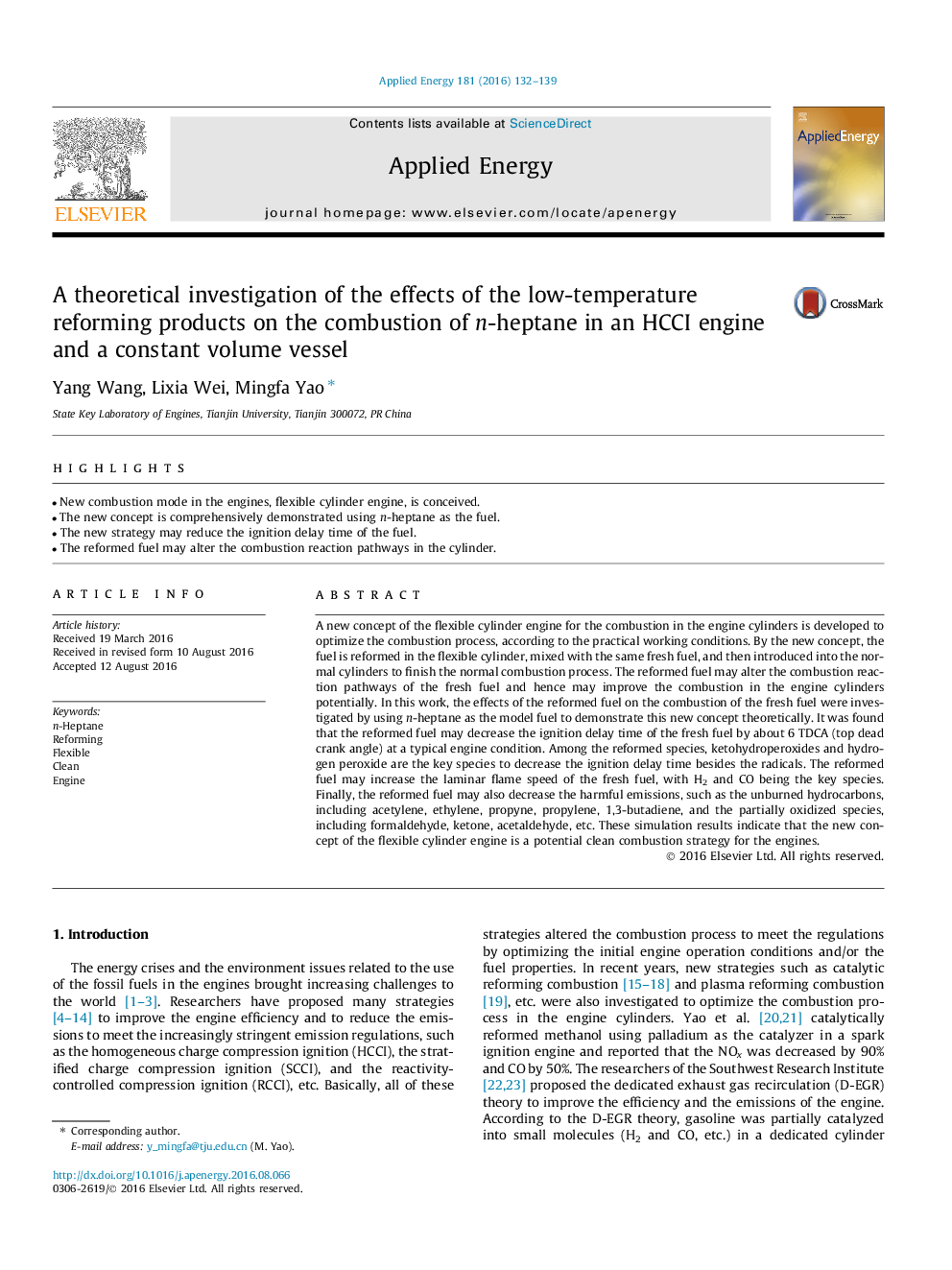| Article ID | Journal | Published Year | Pages | File Type |
|---|---|---|---|---|
| 4917146 | Applied Energy | 2016 | 8 Pages |
Abstract
A new concept of the flexible cylinder engine for the combustion in the engine cylinders is developed to optimize the combustion process, according to the practical working conditions. By the new concept, the fuel is reformed in the flexible cylinder, mixed with the same fresh fuel, and then introduced into the normal cylinders to finish the normal combustion process. The reformed fuel may alter the combustion reaction pathways of the fresh fuel and hence may improve the combustion in the engine cylinders potentially. In this work, the effects of the reformed fuel on the combustion of the fresh fuel were investigated by using n-heptane as the model fuel to demonstrate this new concept theoretically. It was found that the reformed fuel may decrease the ignition delay time of the fresh fuel by about 6 TDCA (top dead crank angle) at a typical engine condition. Among the reformed species, ketohydroperoxides and hydrogen peroxide are the key species to decrease the ignition delay time besides the radicals. The reformed fuel may increase the laminar flame speed of the fresh fuel, with H2 and CO being the key species. Finally, the reformed fuel may also decrease the harmful emissions, such as the unburned hydrocarbons, including acetylene, ethylene, propyne, propylene, 1,3-butadiene, and the partially oxidized species, including formaldehyde, ketone, acetaldehyde, etc. These simulation results indicate that the new concept of the flexible cylinder engine is a potential clean combustion strategy for the engines.
Related Topics
Physical Sciences and Engineering
Energy
Energy Engineering and Power Technology
Authors
Yang Wang, Lixia Wei, Mingfa Yao,
